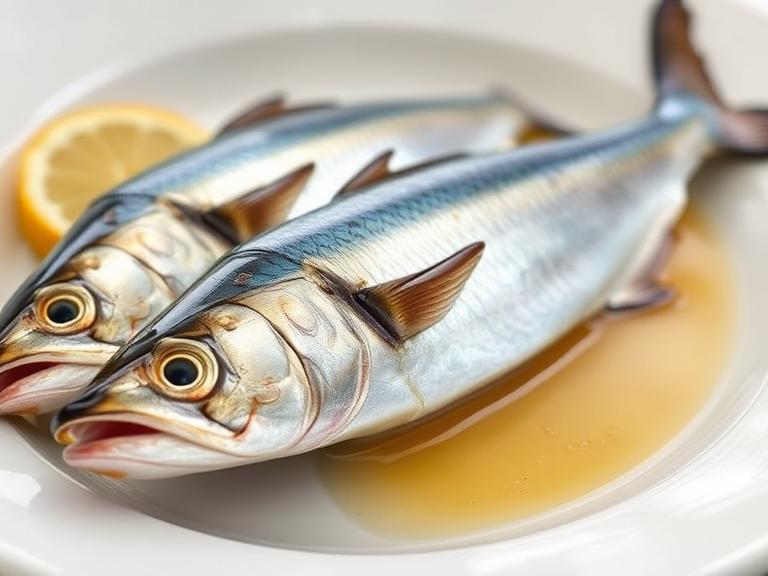Mackerel fish is a small, oily fish that lives in oceans across the globe. It’s well-known for its rich flavor, soft texture, and most importantly—its amazing health benefits. This fish is not just tasty; it’s packed with nutrients that your body needs every day. Whether you enjoy it grilled, smoked, or in a curry, eating mackerel fish regularly can support a healthy lifestyle in a natural way.
In this article, we’ll talk about the nutritional value of mackerel fish, how to cook it in easy and delicious ways, and how to make smart choices for the planet while enjoying this healthy food.
1. Mackerel Fish Nutrition: What’s Inside?
The mackerel fish may be small in size, but it’s a big winner when it comes to nutrition. Here’s what makes it so healthy:
Packed with Omega-3 Fatty Acids
Mackerel fish is one of the richest sources of omega-3 fatty acids. These healthy fats support your brain, heart, and joints. They also help lower inflammation in the body in a natural way.
High in Protein
One small fillet of mackerel fish gives you around 20 grams of protein. Protein is needed for strong muscles, bones, and a good immune system.
Rich in Vitamins and Minerals
You’ll find plenty of important nutrients in mackerel fish, such as:
- Vitamin B12 – supports nerve health and blood cells.
- Vitamin D – helps bones absorb calcium.
- Selenium – protects your cells from damage.
These vitamins help you stay strong and feel good every day.
2. Health Benefits of Eating Mackerel Fish
Eating mackerel fish regularly can offer many health rewards. Here are some of the top reasons people add it to their weekly meals:
Heart Health
Omega-3s in mackerel fish help reduce bad cholesterol and lower blood pressure. This keeps your heart strong and helps prevent heart disease.
Brain Support
Omega-3 fatty acids also support brain health. They may improve memory and focus, especially in children and older adults.
Stronger Bones
Thanks to its high vitamin D content, mackerel fish helps your body absorb calcium. This keeps bones strong and reduces the risk of bone problems like osteoporosis.
Boosted Immune System
With its rich mix of vitamins, minerals, and antioxidants, mackerel fish helps your body fight off sickness in a natural way.
3. Easy and Tasty Mackerel Fish Recipes
You don’t have to be a chef to enjoy mackerel fish. It’s simple to prepare and works well in many kinds of dishes. Here are a few easy recipes to try at home:
Grilled Mackerel
Ingredients:
- 2 fresh mackerel fish, cleaned
- Salt and pepper
- 1 lemon
- Olive oil
Steps:
- Rub the fish with salt, pepper, and olive oil.
- Squeeze lemon juice over it.
- Grill each side for about 4–5 minutes.
- Serve with rice or salad.
Mackerel Fish Curry
Ingredients:
- 2 mackerel fish, cut into pieces
- 1 onion, chopped
- 1 tomato, chopped
- Spices (turmeric, chili powder, coriander)
- Coconut milk
Steps:
- Fry onions and tomatoes in a pot.
- Add spices and cook for a few minutes.
- Add mackerel fish and coconut milk.
- Simmer for 15 minutes.
- Serve hot with rice.
Mackerel Sandwich
Ingredients:
- 1 can of smoked mackerel fish
- Bread slices
- Lettuce
- Tomato slices
- Mayonnaise
Steps:
- Spread mayo on bread.
- Add lettuce, tomato, and mackerel fish.
- Top with another slice of bread.
- Cut and serve.
These recipes are simple, quick, and healthy. You can enjoy mackerel fish in a natural way without needing fancy ingredients.
4. Sustainable Eating Tips for Mackerel Fish
It’s not just about eating healthy; it’s also about eating smart. Making better choices helps protect the ocean and its fish. Here’s how to enjoy mackerel fish while being kind to nature:
Choose Certified Sustainable Fish
Look for eco-labels like MSC (Marine Stewardship Council) on the packaging. These labels mean the mackerel fish was caught in a way that protects fish populations.
Buy Local and Seasonal
Buying local mackerel fish helps reduce the fuel used in transport. Ask your fishmonger when it’s in season. This means the fish is fresher and better for the environment.
Avoid Overfished Species
Not all mackerel fish types are safe for regular catching. For example, Atlantic mackerel from some areas may be overfished. Look up safe choices before buying.
Reduce Waste
Use all parts of the mackerel fish if you can. Bones and heads can be used in soup stocks. This cuts down on food waste in a natural way.
5. Fresh vs. Canned Mackerel Fish: Which Is Better?
Both fresh and canned mackerel fish are healthy. But there are a few differences:
Fresh Mackerel Fish
- Best taste and texture
- More options for cooking
- Short shelf life
Canned Mackerel Fish
- Longer shelf life
- Easy to use
- Often comes with salt or oil
If you go with canned, check the label. Choose low-sodium or water-packed versions for the healthiest option.
6. How Often Should You Eat Mackerel Fish?
Experts say 2 to 3 servings of oily fish like mackerel fish per week is a good goal. This gives you enough omega-3s without going overboard. But keep in mind:
- Pregnant women should avoid high-mercury fish. Luckily, mackerel fish like Atlantic and chub mackerel are low in mercury.
- Always cook fish well to avoid foodborne illness.
Eating mackerel fish regularly can keep your body healthy in a natural way, as long as it’s part of a balanced diet.
7. Mackerel Fish for Kids and Older Adults
Mackerel fish is a smart food for people of all ages. Here’s why:
For Kids
- Supports brain growth
- Helps with learning and memory
- Provides protein for strong muscles
Try mixing it into pasta or sandwiches to make it kid-friendly.
For Older Adults
- Keeps bones strong
- Protects the heart
- Supports brain health
Soft texture makes it easy to chew, and the nutrients help keep energy levels up.
8. How to Store and Handle Mackerel Fish
Fresh mackerel fish can spoil quickly. Follow these steps to keep it safe:
- Store in the fridge and use within 1–2 days.
- If you won’t use it soon, freeze it. Wrap it tightly.
- Thaw in the fridge, not at room temperature.
- Always cook thoroughly before eating.
These simple steps help keep your mackerel fish safe and tasty in a natural way.
Conclusion
Mackerel fish is more than just a tasty meal—it’s a healthy, affordable, and smart choice for your diet. It gives your body key nutrients like omega-3s, protein, and vitamin D. It’s also easy to cook and enjoy at home, whether grilled, curried, or added to a sandwich.
Choosing mackerel fish from sustainable sources helps protect the oceans and future fish supplies. With just a few simple tips, you can enjoy this superfood in a natural way while also being kind to the planet.
So next time you shop or cook, think about adding mackerel fish to your menu. It’s a small fish that brings big health benefits!
Read More: Eucalyptus Tree


